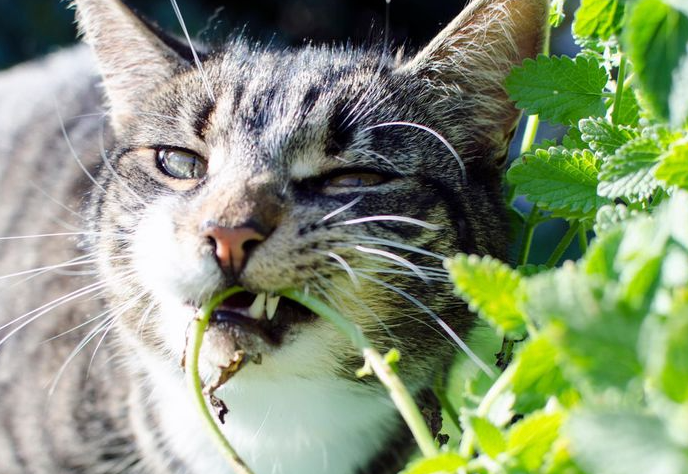URGENT: Bushfires Ravage People & Wildlife In Australia! Help Now!
Do Cats Get High From Catnip?
Anastasia Arellano
It's always fun to watch a cat under the influence of catnip. The herb seems to get them in a silly and sometimes spaced out mood. But why? What is it about this mysterious herb that gets cats behaving like they're high?
Catnip is officially called Nepeta cataria, and it's an herb within the mint family. It's common around many parts of the world, however, it's originally from parts of Asia and Europe.
It can be often found growing as a weed beside roads. Because it is drought-resistant, a lot of people will often incorporate it into their gardens.
 Photo: Pixabay
Photo: Pixabay
If there are any cats in the area, you may have noticed how they get when they come in contact with the herb. They will often begin rubbing themselves against the plant or the dried herb - some will even lick or eat it. Within minutes, the hyperactivity can start where the cats will roll around or even get a burst of energy and run around.
But there are some cats that will be much more sedated like they're just spaced out. The individual reactions all depend on the cat's personality.
 Photo: Pixabay
Photo: Pixabay
The catnip effects are temporary and don't really last longer than half an hour. By then, they usually wear off. Of course, sometimes, depending on the cat, they can build a bit of a tolerance to the herb. But what makes catnip so effective on our animals, is the organic compound called nepetalactone.
When the nepetalactone enters the cat's body through the nose, the compound gets stuck to the olfactory cells which then sends a signal to their brains, which scientists believe triggers them to act a little crazy. The organic compound, nepetalactone, is located in the plants' leaves, stems, and pods. They're released whenever the plant gets chewed or crushed by cats.
 Photo: Pixabay
Photo: Pixabay
And it's not just domestic cats who've been observed enjoying the effects of catnip - apparently, big cats such as lions and tigers also experience similar reactions to catnip!
Catnip is a fun treat for our furry felines as it provides them with fun and it's not dangerous - scientists believe that the risk of overdosing is quite low, as cats seem to have a good grasp of self-control and limit their intake. However, it has been noticed that frequent feline "users" of catnip will experience a decrease in its effects as they build a tolerance. That is why it should be given sparingly as a treat or as a sedation technique for cats that might get nervous on long car journeys or trips to the vet.
 Photo: Unsplash
Photo: Unsplash
As for how catnip affects humans, it does have effects on humans but not the way it does for cats. Some humans will use it as an alternative medicine, as it has been listed to show some medicinal applications such as treating migraines, helping with insomnia, and relieving swelling from arthritis when applied topically to the skin.
Additionally, catnip can be a very effective mosquito repellent for those who don't want to use harsh products. Who knew?
How does your cat react to catnip? Let us know!


